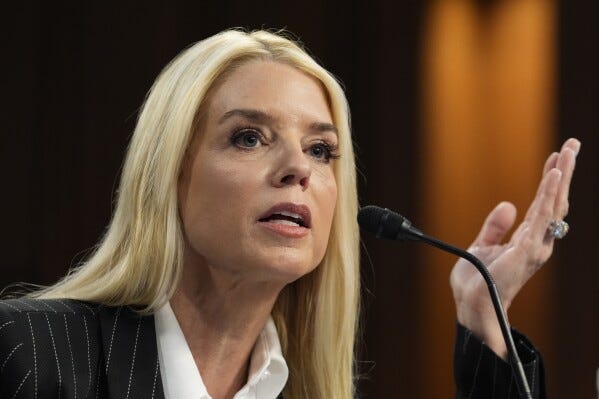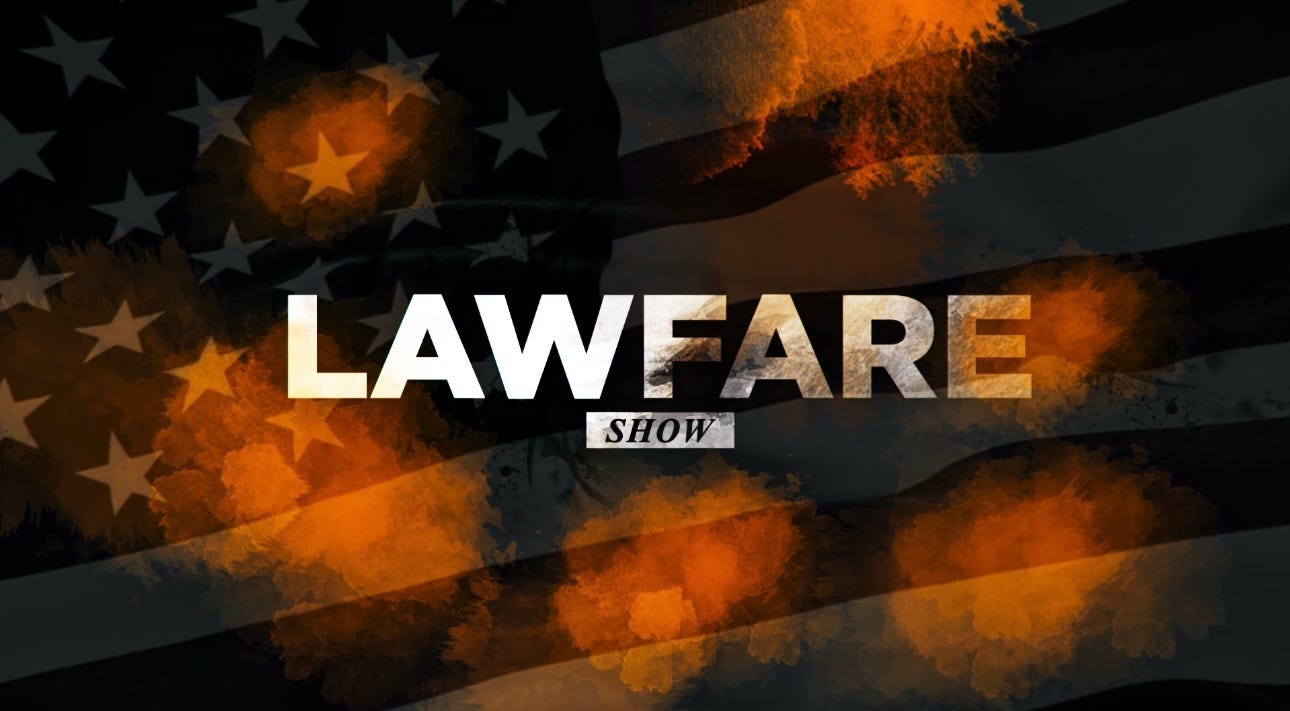Trump Instructs Pam Bondi to Investigate Biden’s Autopen Use
In a provocative move that has reignited debates about election integrity, presidential authority, and political accountability, former President Donald Trump has urged Attorney General Pam Bondi to launch a comprehensive investigation into President Joe Biden’s alleged use of an autopen for signing official documents.
The autopen—a mechanical device that replicates a person’s signature—has become a lightning rod for controversy, with critics questioning the legality and constitutionality of Biden’s pardons and executive orders (EOs).
The Autopen Controversy: What’s at Stake?
An autopen is a machine designed to reproduce a person’s signature using a pre-set template, often employed for efficiency in signing large volumes of documents or for ceremonial purposes like letters and photographs. While its use is not uncommon in government, its application to legally binding documents—such as pardons and executive orders—raises significant legal and ethical questions.
The core issue is whether an autopen signature carries the same authority as a handwritten one. Legal opinions are split: some experts assert that an autopen signature is valid if authorized by the president, citing practicality in modern governance.
Others argue that documents of profound legal consequence require a personal signature to demonstrate intent and authenticity, particularly given the constitutional weight of presidential actions. Reports suggesting Biden has used an autopen—evidenced by identical signatures across multiple documents and whispers about his health and schedule—have fueled speculation and demands for scrutiny.
Legal and Constitutional Implications
The U.S. Constitution grants the president broad powers to issue pardons (Article II, Section 2) and executive orders, but it does not explicitly address the method of signing. This ambiguity opens the door to challenges based on execution. If Biden relied on an autopen for these actions, several critical questions emerge:
Authorization and Intent:
Did Biden explicitly authorize the autopen’s use for each document, and was he fully aware of their contents? Without clear evidence of consent, the documents’ validity could be contested.
Precedent and Practice:
While autopens have been used by past presidents (e.g., for routine correspondence), their application to high-stakes actions like pardons lacks clear legal precedent. A court could rule that such documents demand a personal signature to ensure accountability.
If an investigation confirms unauthorized or improper autopen use, it could render Biden’s pardons and EOs legally void, triggering a cascade of challenges to his administration’s actions.
Election Integrity: A Foundational Challenge
Trump’s call for investigation ties into a broader narrative: the claim that Biden did not legitimately win the 2020 election. Supporters of this view argue that widespread fraud or irregularities—allegations repeatedly debunked by courts, election officials, and independent audits—undermine Biden’s presidency. If this premise were somehow proven (a steep evidentiary hill), all of Biden’s official acts, including those signed with an autopen, could be deemed unconstitutional.
This argument hinges on a hypothetical: if Biden were not the rightful president, his exercise of Article II powers would lack authority, making his pardons and EOs null from the outset. While this remains a fringe legal theory without substantiation, it resonates with a segment of the public and amplifies the stakes of the autopen probe.
Biden’s Mental State: Competence and Consent
Another layer of contention is Biden’s mental acuity. Critics, pointing to his age (81 as of 2024) and occasional public gaffes, suggest cognitive decline might impair his ability to govern—including his capacity to authorize autopen use. If Biden were not cogent when these documents were "signed," or if he didn’t knowingly consent to the autopen’s application, their legitimacy could collapse.
Proving incompetence, however, is a high bar. It would require medical evidence and testimony, none of which has surfaced credibly. Still, the possibility feeds into the narrative that Biden’s administration might rely on aides or technology to compensate for perceived weaknesses, raising ethical questions about transparency and accountability.
Pardons and the Miscarriage of Justice Doctrine
The Constitution’s pardon power is vast but not limitless. Historically, pardons are justified as remedies for miscarriages of justice—cases where the legal system has erred or where mercy is warranted. If Biden issued pardons via autopen without a clear miscarriage of justice, or without personal involvement, their validity could be challenged.
For example, imagine a scenario where Biden pardoned allies or associates preemptively, without public evidence of injustice. Critics might argue these acts abuse the pardon power, especially if an autopen obscured his direct intent. The Supreme Court has never fully clarified the boundaries of pardon legitimacy, but a lack of miscarriage of justice could provide legal fodder for opponents.
Fauci and Beyond: Can Crimes Be Pardoned?
Trump’s push for investigation extends to specific figures like Dr. Anthony Fauci, a lightning rod for criticism over his role in the COVID-19 response. Allegations against Fauci—ranging from mismanaging public health to funding controversial research—have been amplified by Trump allies. Similar scrutiny targets other Biden-era officials or associates.
If Pam Bondi’s investigation uncovers substantial evidence of federal crimes, the question of pardons looms large. Suppose Biden used an autopen to pardon Fauci or others: if those pardons are invalid (due to autopen issues, incompetence, or lack of consent), prosecutions could proceed. Even if valid, pardons cover only federal offenses—state-level charges or civil suits remain viable. Moreover, new evidence post-pardon could spark fresh legal battles, though this is a complex area of law.
The deeper issue is whether "enough evidence" exists to override a pardon’s shield. In reality, pardons are final for past federal crimes unless fraudulently obtained (e.g., through bribery), a rare and untested claim. Thus, while Trump’s rhetoric suggests unpardonable crimes, the legal reality is murkier.
Skepticism About the DOJ: Bread and Circuses?
Even if Bondi launches this investigation, skepticism abounds about the DOJ’s willingness or ability to hold powerful political actors accountable. Pam Bondi, a Trump loyalist, brings a partisan lens—raising fears that the probe could devolve into political theater rather than a pursuit of justice. Historical examples, like the Mueller investigation or Benghazi hearings, often ended with more noise than consequence, reinforcing perceptions of an entrenched establishment.
The phrase "bread and circuses"—from Roman satirist Juvenal—captures this critique: spectacle to appease the masses while power structures remain intact. Critics across the spectrum question whether the DOJ, shaped by decades of political influence, can act impartially. If the investigation targets Biden but spares Trump allies, or vice versa, it risks being seen as a weapon of retribution, not reform. The public might witness headlines and hearings, yet see no systemic change—a distraction from deeper governance failures.
A Critical Crossroads
Trump’s directive to Pam Bondi to investigate Biden’s autopen use is more than a legal skirmish—it’s a flashpoint for competing visions of legitimacy, power, and justice. The autopen itself is a technicality, but it symbolizes broader anxieties: Was Biden’s presidency lawful? Was he fit to lead? Are his actions defensible? And can the system hold anyone accountable?
The evidence for these claims—autopen misuse, election fraud, mental decline—remains speculative or thin, demanding rigorous proof to shift from theory to fact. Meanwhile, the DOJ’s response will test its credibility. A genuine probe could clarify these issues, but a performative one might deepen cynicism, proving the establishment endures regardless of who occupies the Oval Office.
Ultimately, the American public deserves answers, not optics. If wrongdoing exists, it should face legal reckoning—whether tied to Biden, Fauci, or others. But if this is just another act in the political circus, it risks leaving citizens fed up with bread alone, craving substance over show
Watch Lawfare Show
.





